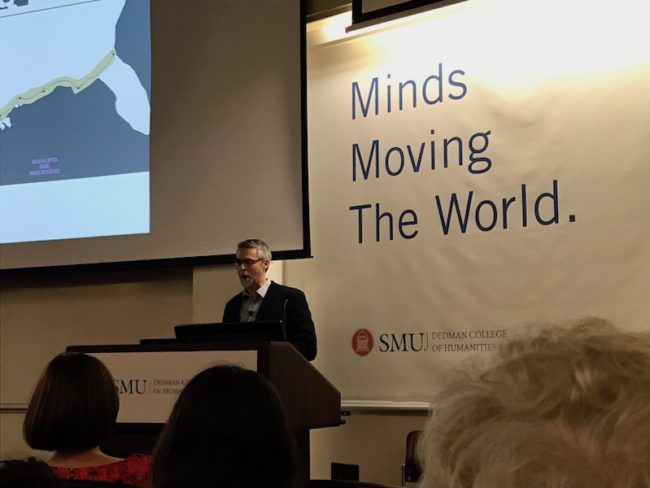*Editor’s Note: 3:45 p.m. March 1 – This story has been edited throughout.

Clements Senior Fellow for the Study of Southwestern America, Eric Meeks discussed the history of the U.S.-Mexico border and its subsequent tragedies at a lecture Feb.21.
“There were 7,000 fatalities in the last 20 years crossing the border,” Meeks said. “I think the border has been an enormous issue for many years.”
The lecture took place in McCord Auditorium at SMU where the estimated 120 audience members were mostly Dallas residents.
Dallas-based painter Eliana Miranda paints pieces about immigration. Miranda attended the lecture to further her understanding on the topic.
“I paint about the border issue,” Miranda said. “These types of lectures help me gain perspective on these issues.”
Meeks shared theories from his developing manuscript entitled, “The U.S.-Mexico Borderlands: A Transnational History.” He said the border has been a national problem for much longer than the recent election of Donald Trump. Trump has made border control a central theme of his presidency.
“With the election of Trump, the border has become front page news every day,” Meeks said.
Meeks spoke about the changing policies from the 18th century to today. While the policies have changed, the controversies have not. The fears that accompany border policies can be global.
“Economic integrations has fueled transport in migration, which in turn has fed rising fears about national security, economic stability and cultural fragmentation,” Meeks said.
While controversy surrounds immigration, it is important to make the distinction between present circumstances and the impossible retreat from global trade.
“I call this a border land, and not a bordered land which is fundamentally distinct,” Meeks said. “People, goods, and capital continue to cross with or without legal sanction every day.”











